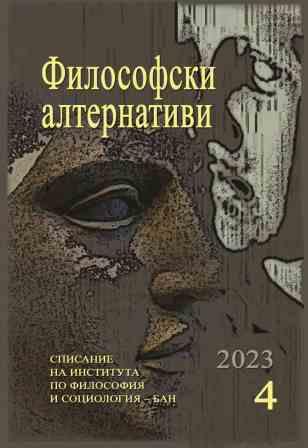Играта в антропологическа перспектива: теорията на Фредерик Бойтендайк
An Anthropological Approach to Play: Frederik Buytendijk’s Theory
Author(s): Vasil MarkovSubject(s): Anthropology, Philosophy, Social Sciences, Psychology, Aesthetics, Social Philosophy, Culture and social structure , Developmental Psychology
Published by: Институт по философия и социология при БАН
Keywords: play; philosophical anthropology; biophilosophy; animal psychology; child psychology; aesthetics
Summary/Abstract: Play theory has been consistently regarded as a cornerstone of 20th century theoretical discourse in areas as diverse as philosophy, psychology, ethology and cultural studies. On the other hand, the rise of digital technology and the spread of video games on a broad cultural level have raised the necessity to reevaluate historical approaches to the multifarious phenomenon of play. Along with Johan Huizinga, another scholar of Dutch origin – the biologist and animal psychologist Frederik J. J. Buytendijk – developed a novel theory of play in the 1930s. Buytendijk’s attempt at theorising human and animal play has been variously defined as biological, psychological and psycho-dynamic due to this scholar’s background in the study of animal behaviour and his reliance on biological models to explain the mechanisms of play. However, Buytendijk’s ideas were shaped in a theoretical setting shared by German philosophical anthropology and he also borrowed heavily from prominent philosophers and phenomenologists such as Hungarian-born Melchior Palágyi, German neurologist and psychiatrist Erwin Straus and Catholic theologian Romano Guardini. This paper tries to provide an overview of Buytendijk’s conception of vital play by examining its original yet synthetic nature. Further emphasis is placed on the aesthetical and anthropological implications of Buytendijk’s contribution.
Journal: Философски алтернативи
- Issue Year: XXXII/2023
- Issue No: 4
- Page Range: 44-63
- Page Count: 20
- Language: Bulgarian
- Content File-PDF

